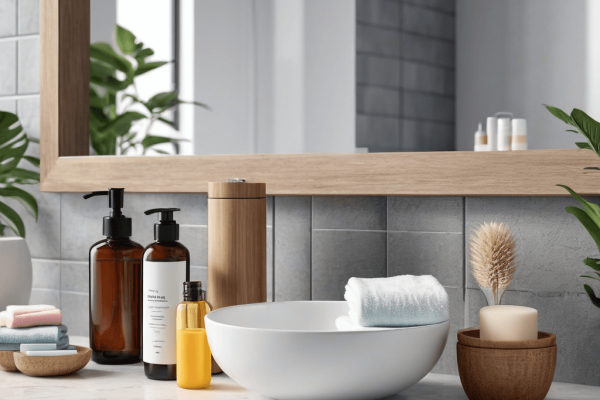Wellness habits play a crucial role in maintaining a balanced and fulfilling life.
By incorporating effective wellness habits into your daily routine, you can enhance your physical health, mental well-being, and overall happiness.
In this article, we will explore what wellness habits are, their benefits, and practical steps to build and maintain these habits in your life.
What are Wellness Habits?
Wellness habits refer to the practices and routines that contribute to our overall health and well-being.
Examples of wellness habits include:
– Regular exercise
– Mindfulness meditation
– Drinking plenty of water
– Maintaining a balanced diet
– Getting adequate sleep
Incorporating wellness habits into daily life helps individuals develop resilience against stress and improves their quality of life.
Strong connections with family and friends enhance emotional support, which is vital for maintaining mental health.
Benefits of Practicing Wellness Habits
Practicing wellness habits offers several key benefits that enhance our day-to-day lives. First, adopting a regular exercise routine can improve physical fitness, boost mental health, and increase overall energy levels.
When we prioritize healthy eating, our bodies receive the essential nutrients needed to function properly. Additionally, maintaining good hydration is crucial for our body’s circulatory system and can help improve focus and digestion.
Also, adequate sleep is vital, as it influences our mood and cognitive abilities. Another significant area is mindfulness practices, which reduce stress and promote emotional stability.
Together, these wellness habits create a positive ripple effect in our lives, fostering better relationships and productivity. Incorporating these habits into our daily routine can lead to lasting changes that enhance well-being.
Top 5 Wellness Habits to Adopt
Adopting the top wellness habits is essential for improving your overall health and happiness. Here are five key habits to consider:
- Stay Active: Engage in regular physical activity for at least 30 minutes each day. This can be walking, cycling, or any sport you enjoy.
- Eat Nutritious Foods: Focus on a diet rich in fruits, vegetables, and whole grains. Avoid processed foods when possible.
- Prioritize Sleep: Aim for 7-9 hours of quality sleep each night to enhance your mental clarity and energy levels.
- Practice Mindfulness: Incorporate mindfulness or meditation into your routine to reduce stress and improve your mental well-being.
- Stay Hydrated: Drink at least eight glasses of water each day to keep your body functioning well and avoid dehydration.
By embracing these wellness habits, you can create a healthier and more fulfilling lifestyle.
How to Build Wellness Habits That Last
Building wellness habits that last involves several key steps. First, it’s essential to start small. Focus on just one or two habits at a time, as this makes it easier to adjust.
Next, set specific and achievable goals, such as walking for 10 minutes daily or drinking an extra glass of water. Additionally, create a support system; friends or family can help motivate you to stick with your wellness habits.
Tracking your progress can also make a big difference; use a journal or app to see how far you’ve come. Remember, consistency is crucial. Some days will be better than others, but don’t get discouraged.
Finally, celebrate small victories to keep your spirits high. By following these steps, you can build wellness habits that stand the test of time.
Common Obstacles to Wellness Habits
Many people face common obstacles when trying to develop and maintain wellness habits. One significant challenge is time management. With busy schedules, finding time to exercise or prepare healthy meals can be tough.
Another hurdle can be motivation; staying committed to new habits requires effort, and it can be hard to stay inspired.
Access to resources can also be a problem; not everyone has access to gyms, fresh produce, or wellness programs.
Additionally, social influences can impact wellness habits. Friends or family may not prioritize healthy habits, which can lead to peer pressure to indulge in unhealthy choices.
Lastly, emotional factors like stress or anxiety can derail commitment to wellness goals. Identifying and understanding these obstacles is the first step toward overcoming them and establishing lasting wellness habits.
Measuring the Impact of Wellness Habits
Measuring the impact of wellness habits is essential for understanding their benefits. There are several methods to evaluate these habits.
First, use self-assessments to record changes in mood, energy levels, and stress management. Journaling your daily experiences can reveal patterns over time.
Second, tracking health metrics such as weight, blood pressure, and sleep quality can provide objective data. You can also use apps to monitor physical activity and nutrition, giving you clear insight into your habits.
Third, gather feedback from friends or family about changes they see in you. This perspective can help you understand your progress.
Lastly, consider consulting with a professional, like a health coach or therapist, who can offer guidance on evaluating your wellness journey.
By combining these methods, you can effectively measure the impact of your wellness habits.
Creating Your Personalized Wellness Habits Plan
Creating your own personalized wellness habits plan is a great way to improve your health and well-being.
First, begin by identifying your health goals. Do you want to get fit, eat healthier, or manage stress? Clearly defined goals can help direct your plan.
Next, assess your current habits to see what you can improve or change. Make a list of habits you currently practice and consider which ones help you and which ones don’t.
After that, develop a plan by choosing a few new wellness habits to add. For instance, you could commit to walking for 20 minutes a day or drinking more water.
It’s important to keep track of your progress to stay motivated. Use a journal or an app to regularly note how you feel.
Lastly, be flexible and adjust your plan as needed. This way, your personalized wellness habits plan can grow and change with you.
In conclusion, establishing wellness habits is key to a healthier life
By incorporating wellness habits like regular exercise, a balanced diet, and mindfulness, you can greatly improve your overall well-being.
It’s important to set realistic goals and track your progress to stay motivated. Remember, consistency is crucial for making these habits last.
Identifying obstacles and creating a personalized plan will help you navigate challenges along the way.
Investing time in your wellness will yield long-term benefits, enhancing not only your health but also your quality of life.


